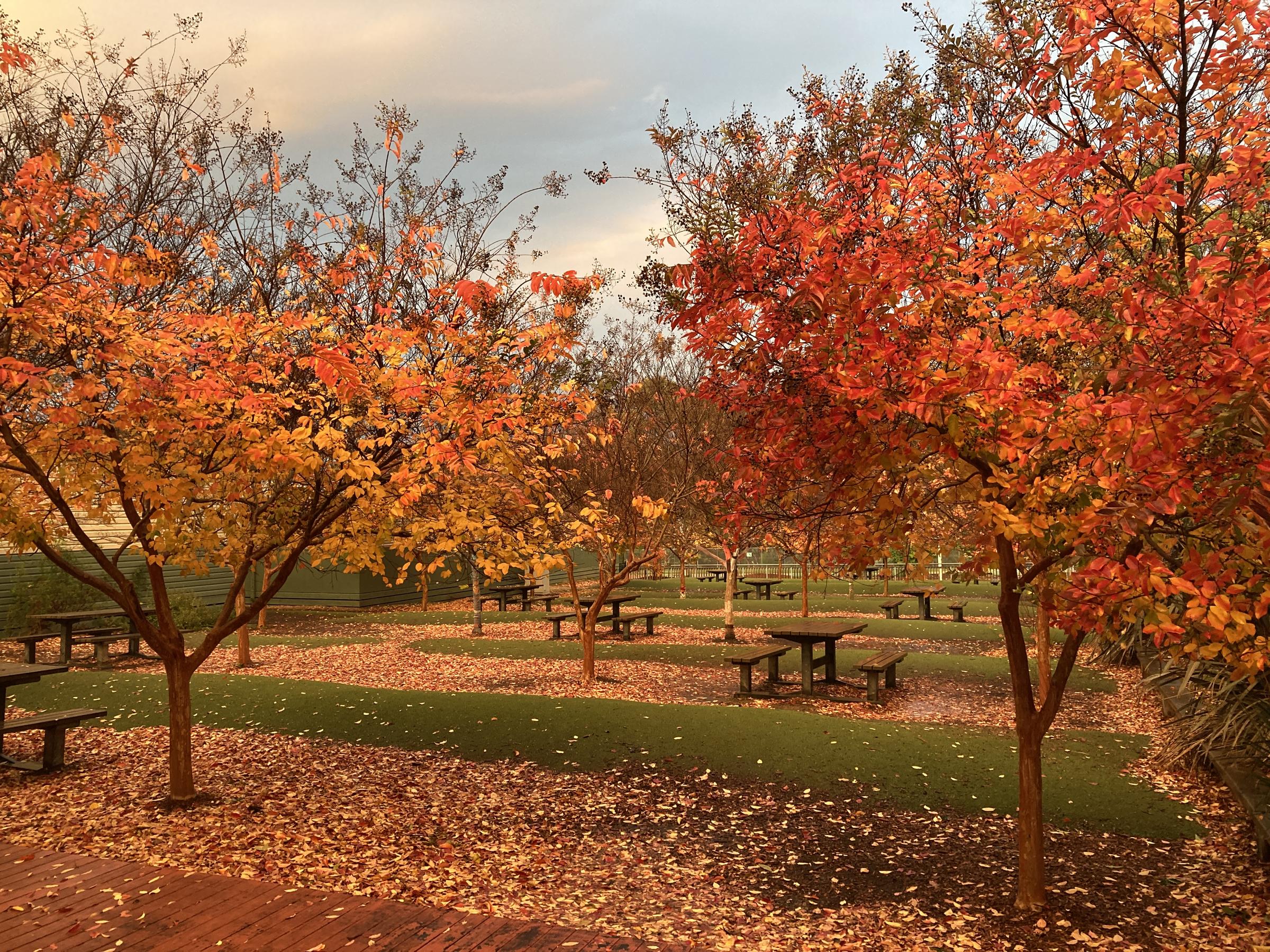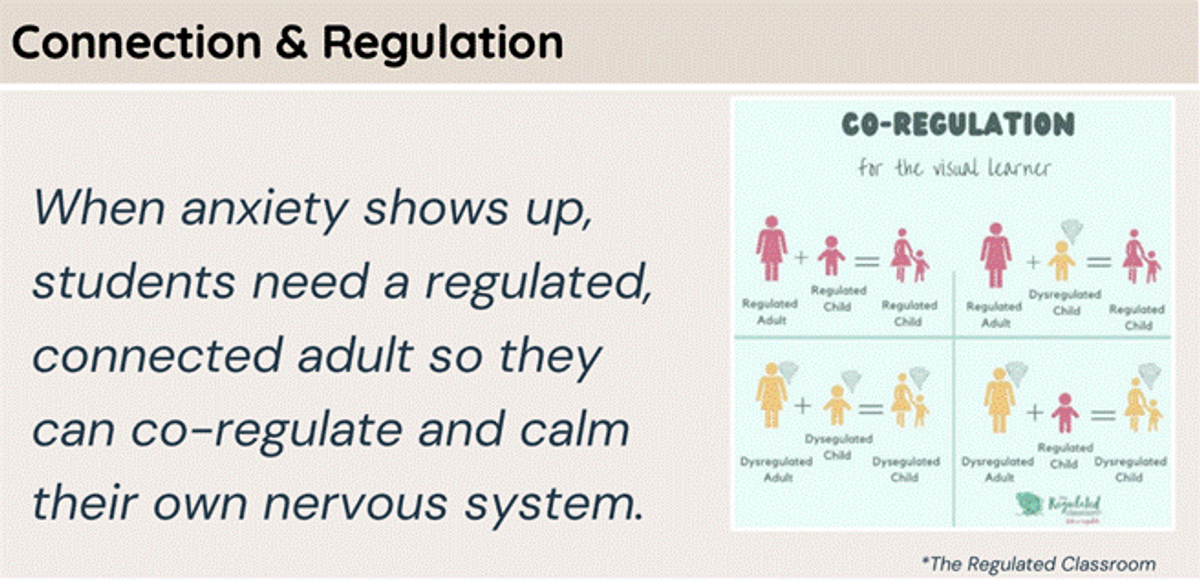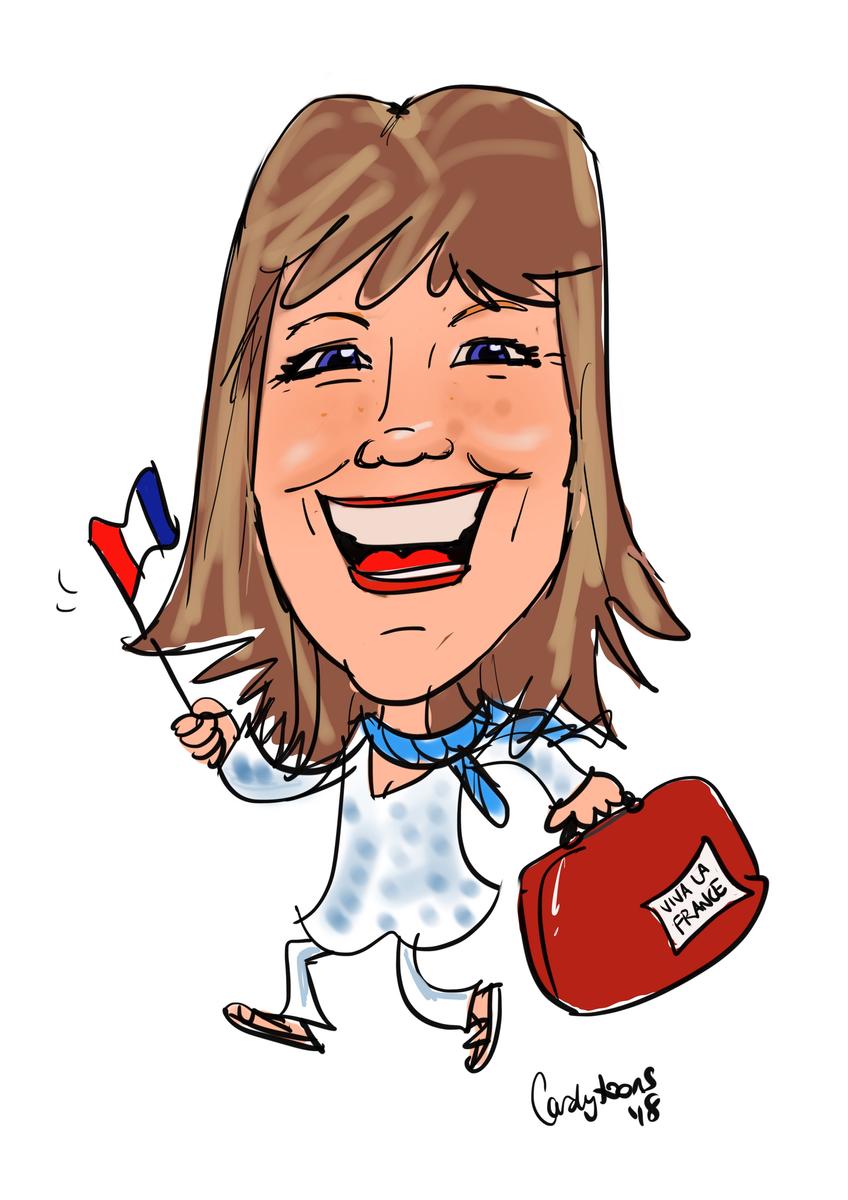Student Wellbeing

Co-Regulation – Working Together to Support Our Students
At our school, we know that strong, calm relationships help children feel safe, connected, and ready to learn. When anxiety or big emotions arise, children benefit from having a regulated and supportive adult nearby. This process is called co-regulation, it’s when a calm, steady adult helps a child return to a calm state too.
As the visual guide below shows, (Visual from Dr Jodi Richardson, The Regulated Classroom) when a child feels dysregulated (anxious, upset, or overwhelmed), the presence of a caring, composed adult can make all the difference in helping them settle and re-engage with learning.
What Our Teachers and Education Support Team Do
- Recognise signs of dysregulation early and respond with patience and understanding.
- Use calm voices, open body language, and predictable routines to help students feel safe.
- Offer short breaks, movement, or quiet spaces when needed, so students can reset before returning to learning.
- Teach emotional regulation skills through daily routines, modelling strategies like deep breathing, problem-solving, and using “feelings” language.
- Work closely with each other and families to ensure consistent support strategies are used across settings.
How Parents and Carers Can Support Co-Regulation at Home
- Model calm behaviour when your child is upset, your tone and body language matter.
- Acknowledge and name feelings: “I can see you’re feeling frustrated” helps children feel understood.
- Practise calming strategies together, such as deep breaths, stretching, or a quiet activity.
- Keep routines predictable, especially around mornings, mealtimes, and bedtime.
- Use positive reinforcement when your child uses their own calming tools or problem-solving skills.
Together, we are helping students build lifelong skills to understand and manage their emotions. One calm connected moment at a time.
Janine Hough
janine.hough@education.vic.gov.au
Brad Ryan
bradley.ryan@education.vic.gov.au



